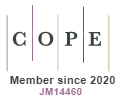The classroom in the (Post) pandemic context: resignifying Science content from escrevivências
DOI:
https://doi.org/10.5585/dialogia.n36.18319Keywords:
Science teaching, Registrations, Literature, PandemicAbstract
The pandemic context imposed many challenges on Education: access to remote classes, pedagogical strategies involving teachers, students and family and, certainly, the urgency to address contents that problematize the difficulties in facing the pandemic. Based on this, this article proposes to discuss, from a theoretical approach, how social issues aggravated by the arrival of COVID-19, such as access to basic sanitation and water, can be addressed in the Science class from narratives that emerge from the daily lives of the groups most affected by the new coronavirus. We believe, therefore, that it is possible to create a Science Education committed to its social role and engaged in facing the social inequalities aggravated in the pandemic. For this, we started from the intellectual contributions of Paulo Freire, bell hooks, Carolina Maria de Jesus and Conceição Evaristo in order to reflect on the importance of the resignification of the contents of Science Education.
Downloads
References
ARROYO, Miguel. A função social do ensino de ciências. Em aberto, Brasília, ano 7, v. 7, n. 40, p. 3-11, out/dez. 1988.
BRASIL. Lei nº 11.445, de 05 de janeiro de 2007. Estabelece diretrizes nacionais para o saneamento básico [...] e dá outras providências. Diário Oficial da União, jan. 2007.
BRASIL. Ministério da Educação. Base nacional comum curricular. Brasília, DF:
MEC, 2017. Disponível em: http://basenacionalcomum.mec.gov.br/. Acesso em: 27 set. 2020.
COUTO, Mia. E se Obama fosse africano? São Paulo: Companhia das Letras, 2011
EVARISTO, Conceição. Poemas da recordação e outros movimentos. Belo Horizonte: Nandyala, 2008.
EVARISTO, Conceição. Insubmissas lágrimas de mulheres. 2. ed. Rio de Janeiro: Malê, 2016.
EVARISTO, Conceição. Becos da memória. 3. ed. Rio de Janeiro: Pallas, 2017.
FREIRE, Paulo. Educação como prática da liberdade. Rio de Janeiro: Paz e Terra, 1967.
FREIRE, Paulo. Pedagogia do oprimido. Rio de Janeiro: Paz e Terra, 1977.
FREIRE, Paulo. Pedagogia da autonomia: Saberes necessários à prática educativa. São Paulo: Paz e Terra, 1996.
FREIRE, Paulo. À sombra desta mangueira. Rio de Janeiro: Editora Paz e Terra, 2015.
FREIRE, Paulo. Professora sim, tia não: cartas a quem ousa ensinar. 26. ed. São Paulo: Paz e Terra, 2016.
HOOKS, bell. Ensinando a transgredir: a educação como prática da liberdade. 2. ed. São Paulo: WMF Martins Fontes, 2013.
HOOKS, bell. Ensinando pensamento crítico: sabedoria prática. São Paulo: Elefante, 2020.
JESUS, Carolina Maria de. Quarto de despejo: diário de uma favelada. 10 ed. São Paulo: Ática, 2014.
Mulheres negras são as mais afetadas pela falta de saneamento básico no Brasil. ONU News, Brasil, 8 jan. 2019. Disponível em: https://news.un.org/pt/story/2019/01/1654412. Acesso em: 26 set. 2020.
SILVEIRA, Daniel. Coronavírus e desafios à prevenção: Brasil tem 31,3 milhões sem água encanada e 11,6 milhões em casas ‘superlotadas’. G1, Rio de Janeiro, 28 mar. 2020. Disponível em: https://g1.globo.com/economia/noticia/2020/03/28/coronavirus-e-desafios-a-prevencao-brasil-tem-313-milhoes-sem-agua-encanada-e-116-milhoes-em-casas-superlotadas.ghtml. Acesso em: 26 set. 2020.
Relator diz que sem água e sem saneamento não haverá sociedades justas. ONU News, 28 jul. 2020. Disponível em: https://news.un.org/pt/story/2020/07/1721481. Acesso em: 28 set. 2020.
Downloads
Published
How to Cite
Issue
Section
License
Copyright (c) 2020 Dialogia

This work is licensed under a Creative Commons Attribution-NonCommercial-ShareAlike 4.0 International License.
- Abstract 2007
- PDF (Português (Brasil)) 1915






